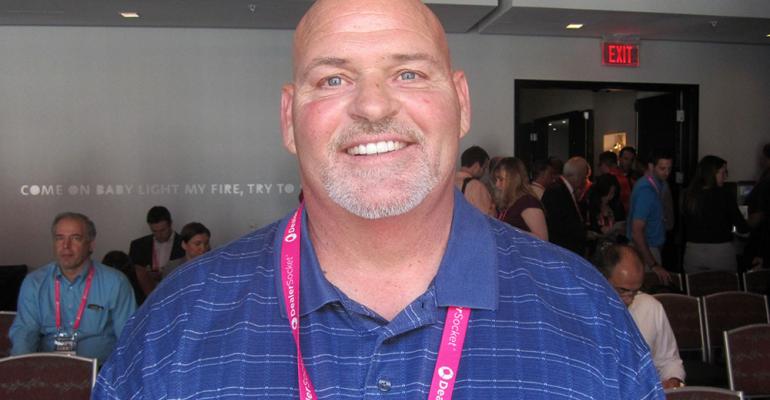
SAN DIEGO – Joel Riley isn’t trying to keep information from his dealership’s customers.
But sometimes it’s intemperate to tell them too much over the phone, the business development manager of Findlay Honda in Henderson, NV, says at a conference here presented by DealerSocket, a customer-relationship management provider.
Riley oversees a call-center operation that uses DealerSocket’s Revenue Radar system. It mines dealership databases for customers who may need a particular service in 11 categories. The system sends alerts to the call center, which in turn contacts customers.
Categories include end of term (customers reaching finance or lease maturity and may be interested in trading out their vehicle), extended-service plan (customers who did not purchase a service agreement and their factory warranties may soon expire) and declined service work (customers refused recommended repairs or maintenance haven’t been back).
The system also alerts the dealership BDC of customers who are in a position to potentially trade and lower their payments by buying a new vehicle in stock. That’s where Riley advises against saying too much in an initial phone call.
“You want to tell the customer, ‘If I can get you in a new car at the same rate you are paying now, or possibly a lower rate, would you be interested?’” he says. “You don’t want to say, ‘Your car’s worth this amount.’ And never say, ‘I can lower your payment with another car.’”
Those are premature commitments that can cause problems later on if imponderables occur. For instance, “they can bring in a car with problems,” making the vehicle worth less than database information suggested, Riley says.
“Some salespeople give the customer too much information,” says Emily Malonado, Revenue Radar’s executive sales manager. “The purpose of the call is to make an appointment, not sell a product on the phone.”
Once an appointment is set, the BDC notifies the appropriate dealership person, such as the sales manager, who takes it from there.
A former oil-rig worker, Riley over time improved his phone skills at the dealership.
“Make it really low key,” he says. “When I started, I read from a script, and it sounded like it. You don’t want that. I’d launch into it, and sometimes a customer would throw me a question I didn’t have the answer to. It’s trial and error.”
He advises BDC callers to use CRM information to learn about the customer they’re calling. “I’d look at the age, how many cars they’ve purchased; things like that,” he says. “I want to know who I’m talking to.”
Some customers willingly agree to appointments. Some initially refuse, but then call back. Others flatly say no. “You can tell on the phone if someone doesn’t want to talk to you,” Riley says.
In what may seem self-evident, he also offers this tip: “People who hate making phone calls are not the ones you want making calls.”





